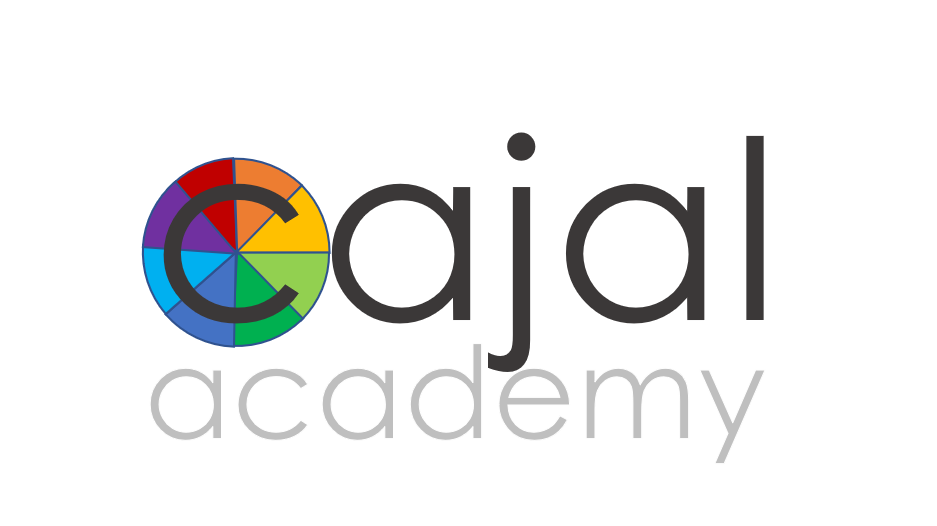Insider Tips for Protecting Your Child's Educational Rights: Exclusive Interview
Get an insider’s look at how you can protect your child’s educational rights in our exclusive interview with leading Attorney Andrew Feinstein.
Every child has a federal right to an educational program that is appropriate to their particularized needs — but that right is only as valuable as the ability to enforce it. What’s “appropriate”? How do we figure out what our children need when we aren’t in the classroom by their side? And how do we navigate a system that is far from transparent to protect their rights?
We asked our friend Andrew Feinstein to help shed some light on our children’s rights under federal education law, and what a parent can do to enforce them. Andy is widely recognized as a leading special education attorney who represents families throughout Connecticut as well as being an active and passionate advocate for policy changes to benefit all Connecticut children.
Andy was kind enough to take the time to share his expertise in this exclusive interview:
What can a family do if they are concerned that their child has been misdiagnosed, or that their district is not appreciating their child's struggles?
Parents need their own experts who have the credentials and background and have done the work in observing the child and interviewing school personnel, to be convincing at PPT meetings and, when necessary, in due process hearings. A parent cannot win against a school district without an expert. There are simply no exceptions to this rule. The expert needs also to be independent of the private school in which the parent wants to place the child. And the expert needs to have the integrity, confidence and articulation to be able to be an effective advocate for the child.
At what point in the process should a family get an attorney? Should you wait until you're sure your child needs an outplacement? And does an advocate do the same thing?
My view is that it is very important to set up the process correctly. If parents wait until they are ready to make an outplacement, the case will not be set up right in many cases. Advocates can be very effective in working with parents to explore options and come up with a preferred program for the child. A good advocate can work with both the parents and the school system to work out a strong, challenging program for the student. The one tool that the attorney has is the due process hearing, or the threat thereof. Due process hearings are so long, so expensive, and so emotionally draining that both sides want to avoid them. It is often the threat of such a hearing that forces decent settlements. A good lawyer is one who will work with the client to identify what the client needs, tell the client whether the outcome is achievable, and then work to produce the outcome.
What if your child's district doesn't agree to an outplacement, or insists on a school that you don't think is appropriate for your child's needs? What can you do then?
The IDEA provides a continuum of dispute resolution mechanisms. The ultimate weapon is the due process hearing. Prior to a hearing, there is either a resolution session or a mediation. The vast majority of disputes over outplacement result in a unilateral placement by the parents (so the school district has not responsibility for the appropriateness of the program) with an amount of reimbursement from the district for the costs of the program. The amount of reimbursement the school district is willing to provide is principally based on how likely the district thinks it is that the district will lose a hearing. If the parent has strong experts making persuasive arguments for an outplacement, the district will pay more. Note: to prevail at a hearing, the district merely needs to show that it has offered an individualized program designed to permit the student to make meaningful educational progress. The hearing officer does not weigh the value of the district's program against the value of the parent's proposed program. Indeed, unless the hearing officer finds that the IEP offered by the school district fails to offer the child a free appropriate public education (FAPE), the hearing officer cannot even look at the appropriateness of the proposed out of district placement.
Many families find themselves with a clear need for a different educational environment but no state-approved program that's appropriate for their child's needs. If there is no approved or accredited program with a FAPE for a given child's academic AND therapies needs, are there circumstances under which a district would reimburse for an unaccredited program?
The answer is yes, but. Parents unilaterally place kids, at their own risk, in a wide variety of programs and get reimbursement all the time. The “but” is that public school districts will claim that one of the programs on the state list of approved special education programs is perfectly appropriate for the child (to get the list, go to edsight.ct.gov/SESPortal/main.do and hit the link for Approved Private Special Education Programs). Indeed, there is a state regulation that requires a school district to consider an approved special education program before considering an unapproved program. Yet, reliance on the approved list is particularly an issue for children who present with maladaptive behavior. Most of the approved schools use consequence-based behavior systems, such as point systems. Such contingent reward systems can be highly counterproductive for many children, particularly for children with anxiety. Further, the approved schools that focus on behavior often do so at the expense of rigorous academics. Beyond that, public school systems believe they have an obligation to educate all children within their own public schools. So, more often than not, parents have an uphill battle to get their children placed in a non-public school in the first place.
Many of the families we talk to have kids with complex profiles with learning, sensory, executive function and social differences. What does it mean if their districts recommend a "therapeutic placement" -- is that limited to an ABA behavioral therapy school? Is there any evidence that those programs work for kids whose actions are influenced by these differences, and the fears and frustrations they can create?
ABA means different things to different people. In many cases, all it means is a data-based program -- one that measures changes in behavior after different interventions are added to the child's program. In other cases, ABA means the sort of discrete trial instruction recommended by Dr. Lovaas for children with severe autistic symptoms. The education establishment has become extremely fixated on data-heavy systems, believing that accountability comes from counting. Unfortunately, the intense reliance on data has led practitioners to identify easy-to-count behaviors, often known as the low-hanging fruit, and then become focused on changing those data elements. The underlying issues are not addressed. And, often, the easy to count data are a weak proxy for the real target behaviors. Many therapeutic programs aim at extinguishing certain target behaviors. Yet, extinguishing undesired behaviors in one setting does not really deal with the issue. Often the result is that other undesirable behaviors emerge or that the targeted behaviors are suppressed at school but flourish outside of school.
Too many of the families contacting us have seen their kids traumatized in a public school environment by their school team's failure to appropriately meet their child's needs. What can they do to protect their kids while they go through the process?
Parents have the right to unilaterally place their child at another educational setting if they believe their child is not receiving a FAPE in the public school. Parents can, of course, place their child privately at any time, as long as the parents are willing to pay the cost. It the parents want the school district to pay, they will have to demonstrate, through the use of experts, that the public school program was not appropriate. Short of a unilateral placement, however, the parents have the right to call a PPT meeting and demand changes in their child's program or ask for evaluations. Further, parents can and should secure outside experts who can observe the child in school and make recommendations for programmatic changes to alleviate the trauma.
What about families who don't have the financial means to hire an attorney. Are there any organizations that can help?
The Connecticut Parent Advocacy Center (CPAC) provides free advocacy for parents with limited means. Certain of Connecticut's legal aid organizations provide special education advocacy, as does the Center for Children's Advocacy in Hartford. Most private lawyers work on a fee for time basis. Because relief in the special education arena is often not monetary, few if any lawyers work on a contingent fee basis. That said, if a parent goes through a hearing and win on the merits, the school district is responsible for paying the parent's legal fees.
One final question for you: can you recommend a good resource where families can learn more about their children's educational rights, and what they can be doing to advocate for them? And are there any in-person events where families can learn more and meet attorneys like you?
Coming up on Saturday, October 5, 2019 is the second annual conference of Special Education Equity for Kids in Connecticut (SEEK-CT), Connecticut's most informative Special Education Conference: SEEK-CT's Back-to-School: Special Education Parent Empowerment Conference at the Omni Hotel in New Haven. Presentations focus on trending special education issues and must-know advocacy skills to prepare for a successful school year. Parents and professionals should attend. You can learn more about this important event or buy tickets here: https://seekct.com/annual-conference.
The premier national organization is the Council of Parent Attorneys and Advocates (COPAA), which has a terrific online library, training courses, a listserv, and an intense annual conference in March. You can check out COPAA at COPAA.org.
Thank you so much for taking the time to share your expertise, Andy, and for all you do to protect the rights of children with special needs across Connecticut!
About Attorney Andy Feinstein:
Andy Feinstein is the founding attorney at Feinstein Education Law Group. He has represented children with disabilities and their families pursuing appropriate educational programs for the past twenty years, first in Hartford with David C. Shaw, from 2008 to 2015, as a solo practitioner in Mystic, Connecticut, and, since July 1, 2015, as the owner of Feinstein Education Law Group, LLC. He serves as co-chair of the Government Relations Committee for the Council of Parent Attorneys and Advocates (COPAA), the preeminent national special education advocacy organization and an adjunct professor of special education law at Central Connecticut State University. Attorney Feinstein graduated from Wesleyan University in 1972 and the New York University School of Law in 1975. He completed the Senior Manager in Government Program at the Kennedy School, Harvard University, in 1983. He has served as a professional staff member of the House Committee on Armed Services and Chief Counsel of the House Civil Service Subcommittee. Formerly, he chaired United Cerebral Palsy of Greater Hartford and served on the Board of Community Health Charities of Connecticut for many years. Andy lives in Mystic with his wife Liz Bochain and their grandson Jacob.





